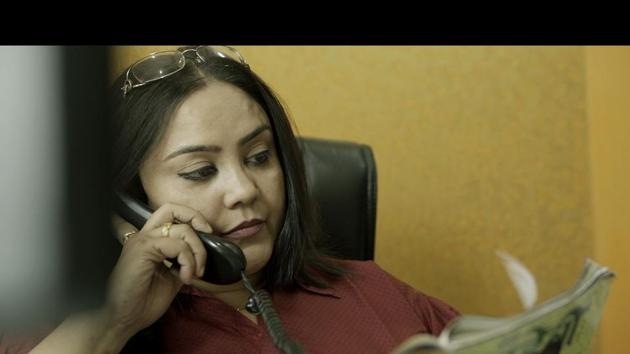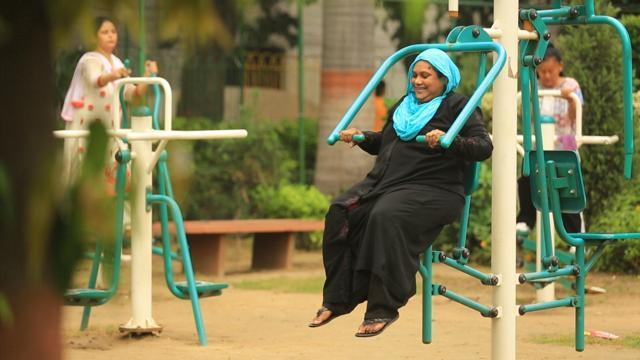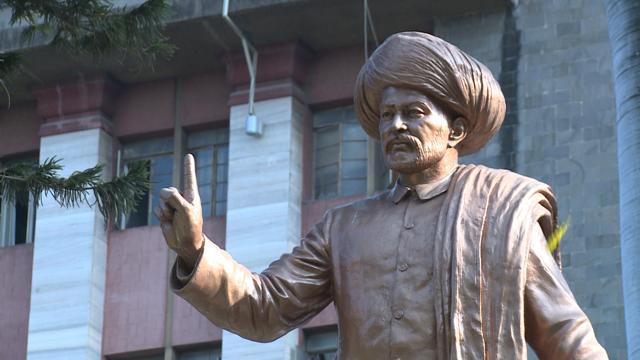Weekend: The Open Frame Festival is for documentary lovers
PSBT Open Frame festival is a platform for budding documentary filmmakers
The position of the documentary has always been precarious in the annals of Indian filmmaking. Despite having documentarians of the stature of S.N.S Sastry and Anand Patwardhan, the format has always had few takers – both in terms of people who would want to produce and showcase. Consequentially, a vacuum has emerged over the years between reality and fiction which only the documentary can fill. The Public Service Broadcasting Trust (PSBT) has for more than a decade at least, tried to fill this vacuum by championing the cause of the Indian documentary. Organised by PBST, The Open Frame Festival will screen a number of documentaries over the weekend that have all been commissioned by the trust. And from the tableau on offer, one can gauge the variety and depth on offer.
The way PSBT’s festival works is worth a look-in in itself. All films that are part of the festival are commissioned by the trust. All vary in terms of subject, from the extremely personal to the social, from history to the cultural, and at times even controversial. How are these ideas chosen? “We often commission ideas we think the filmmaker feels very close to. We have a number of ideas ourselves, but we always want to see what a person feels about a particular subject. Unless he has clarity and vision, even technical know-how can’t get a good film out of him,” Rajiv Mehrotra, Managing Trustee of PSBT said. According to Mehrotra, PSBT is always open to first-timers. But that in turn increases the risk of failing. “We are set up for failure, if I can put it that way. One-third of what we do, we will always fail at. But it is necessary, or we’ll forget to push boundaries, and stay comfortably mediocre,” Mehrotra adds.


The festival’s is evidence of the arrayed sense of focus Mehrotra says PSBT is always on the lookout for. While a certain filmmaker might look at the extraordinary, another may choose to turn his or her gaze towards the ordinary. An example of this would be Juhi Bhatt’s Veil Done which follows the story of three Muslim women from Nizammudin who try to change their lives, by going to the gym. “Something as basic as going to a gym is a casual choice for me and many urban women, yet it is a struggle and a battle for many others. It is not only about women of our country, I think women struggle for freedom in varying degrees across the globe irrespective of class, religion, work spaces and social strata,” Bhatt said. Veil Done embodies the importance of telling the little stories, of the little victories in a world where all we seem to be accumulating is perpetual loss.
History and its re-imagination have been on the forefront of discourse in recent times. Whether it is Tipu Sultan in school textbooks in Rajasthan or the history of Mughals in India, narratives are either being smudged or smoothened. Gouri Patwardhan’s In a Shadowless Town presents the city of Pune through its many heritage walks. But curiously, for Gouri, these walks have either been selective or simply ignorant of the rich Dalit Bahujan history of a city that is largely identified through Brahminical narratives. “Twenty years back while working as a research assistant cum interpreter for a documentary on Dr. Ambedkar, I first visited a neighborhood in Pune with majority Dalit Bahujan population. It was then that I had to accept my own caste location. After that I started questioning Pune’s exclusively Brahmin image,” Gouri said. Though such sanitisation may well be the case for many other places in India, Gouri believes Pune is more aggressive in its re-writing process as compared to other places. “The Brahmins ruled here for years. That also might be the reason why the non-Brahmin movement started in this city. I wanted to bring out the politics behind that sanitisation process,” she adds.

There are then curious subjects like Anandana Kapur’s Jasoosni which throws light on the lives of women involved in the business of intelligence gathering – detectives. “Women in the business of intelligence unabashedly embrace the unusual. We also don’t spontaneously associate women with adventure seeking and risk taking. Such assumptions about women inspired me to explore their world. Women detectives are almost always described in cliches as seductresses, pawns in power games and as accessories to the dapper or eccentric male investigator. The women in Jasoosni shatter these myths,” Kapur said. According to Kapur, contrary to popular perception women detectives are severely critical of other women who use them for their own selfish good. That said, the most fascinating thing about these women for Kapur was ‘the courting of physical and emotional risks’. “This is as much a profession of negotiating vulnerabilities as it is about power,” she said.
Apart from these there are a number of other films that chart various stories, from Mamta Singh’s Women of Varanasi to Kamal Swaroop’s ode to artist Atul Dodiya in Atul, to K R Manoj’s Work of Fire that tells the disturbing story of the firework production centres of Sivakasi. At once, these films are prescient for their social connotations, educational for the kind subjects they choose and at times pure joy for the little stories they want to tell. “We have a partnership with our filmmakers. We don’t tell them what they can or cannot do. We simply try to encourage and empower the filmmaker,” Mehrotra said.
WHAT: PSBT Open Frame film festival
WHEN: 17-19 September
WHERE: India International Centre, Lodi Road
Call: 24619431
Nearest Metro Station: Khan Market
.
Get more updates from Bollywood, Taylor Swift, Hollywood, Music and Web Series along with Latest Entertainment News at Hindustan Times.
Get more updates from Bollywood, Taylor Swift, Hollywood, Music and Web Series along with Latest Entertainment News at Hindustan Times.





